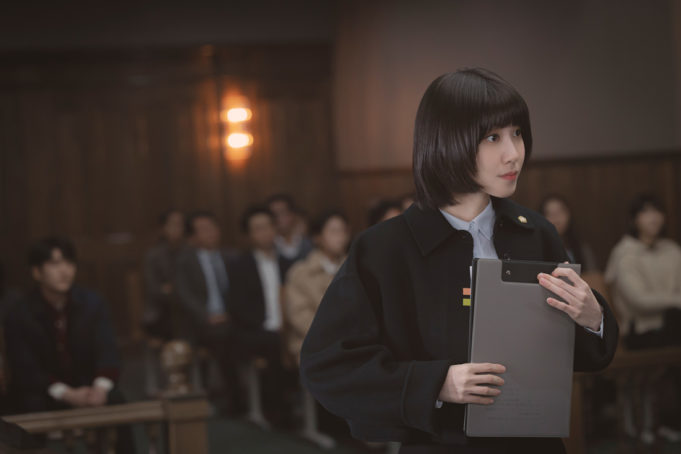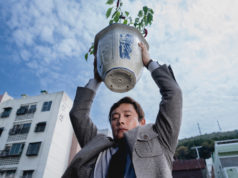When was the last time you saw a good lawyer show? The last one I saw was The Good Wife, which went off the air in 2016. Its spinoff doesn’t have the same zest, and there’s no reason to think the upcoming reboot of Law & Order will do more than rip off news headlines like its previous incarnation did. If you want a TV drama that truly does something new with the form, Netflix has the Korean show Extraordinary Attorney Woo. Likely inspired by The Good Doctor, which has been remade on ABC, this show about a lawyer on the autism spectrum initially drew minuscule ratings in South Korea but ended its 16-episode season as one of the country’s biggest hits. It probably won’t inspire any internet memes or merchandise like Squid Game did, but it may just be an even more radical piece of television.
Park Eun-bin portrays the title character, whose full name Woo Young-woo is a palindrome in the Korean language, which explains her obsessions with other palindromes. We first see her as a 5-year-old girl (Oh Ji-yul) in 2000 who doesn’t speak until the day when she sees her father (Jeon Bae-soo) attacked in the street by a crazy neighbor. The distressed girl starts reciting from the criminal code regarding assault, which she has picked up from reading her father’s law books, and her dad is so happy about her first words that he hugs the man who beat him up.
Twenty-two years later, she’s a summa cum laude graduate from Seoul National University who is nevertheless passed over for jobs because of her condition — she can memorize reams of documents and instantly recall which one is relevant to a case, but no one believes in her ability to talk to clients or argue cases in open court. That’s until the country’s second-largest firm Hanbada extends her a special job offer, and that turns out to be because the firm’s CEO (Baek Ji-won) is playing her own Machiavellian long game against the country’s biggest firm, Taesan. Young-woo is blissfully ignorant of this as she starts litigating both civil and criminal matters.
Show creator Kim Chul-yeon has clearly borrowed much from the template of David E. Kelley’s 1990s lawyer shows. The weekly cases alternate between heavy (an autistic and mentally challenged man is accused of beating his brother to death) and palate-cleansingly light (a bride sues after her strapless wedding dress falls off and exposes her boobs to her wedding guests). Young-woo’s neurotypical fellow lawyers are hapless in their personal lives despite being young, attractive, rich, and working for prominent people. At its quirky worst, the show plays like a latter-day version of Ally McBeal — at one point all the lawyers drop everything to track down the chef from a closed-up noodle shop on Jeju Island. Granted, their boss (Kang Ki-young) is in the middle of a cancer scare and the chef’s gogi guksu is that good, but how does that justify so many trained professionals ignoring the case they’re working on?
Nevertheless, Young-woo’s condition does lead the show down some interesting paths, and Episode 10 is a deeply disquieting story about Hanbada defending a young man (Lee Won-jung) who’s accused of raping an intellectually disabled woman (Oh Hye-soo). His defense — a variation of “it’s not rape, we love each other” — is echoed by the alleged victim, and no one has pure motives or an easy answer. The main plot mirrors a subplot in which the impossibly handsome litigator (Kang Tae-oh) who’s dating Young-woo starts a bar brawl with his college friends after they say he’s only with her out of pity.
Lead actress Park is not autistic, though she has clearly undertaken a close observation of their behaviors. She makes an excellent guide as she points out the complicated Nazi past of the early autism researcher Dr. Hans Asperger. She has to deal with insensitive clients and a horrible new boss (Choi Dae-hoon) who screams at her to shut up when she’s babbling compulsively. The climax of the season, when Young-woo manages to squeeze out of a bind created by Hanbada and Taesan, is neatly managed as well. When trying to poach her from Hanbada, Taesan dangles the offer of a job in America, where there’s greater understanding of autism among medical professionals and the general public. I’m not qualified to say how true that is, but I can say this: Neither America nor any other country has made a TV drama like Extraordinary Attorney Woo.












